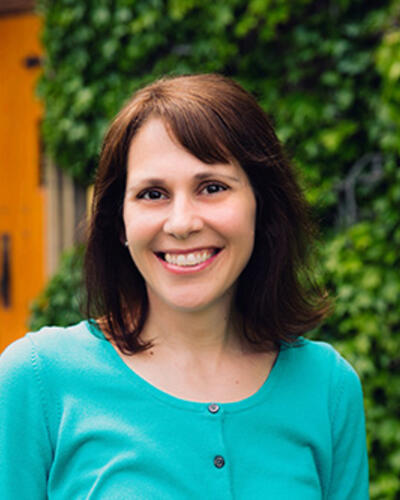As a teacher-scholar of interpersonal, family, and dialogic communication and believer in the constitutive function of communication, I strive to understand how communication enables or challenges personal and relational identity-related goals including connection and belonging.
My education from the University of Nebraska (Ph.D. in Communication Studies), Syracuse University, (M.S. in Speech Communication), and Bloomsburg University (B.A. in Communication and Sociology), equipped me with rich theoretical knowledge of interpersonal and family communication and qualitative and critical methods. As a member of the National Communication Association and Eastern Communication Association, I find great value in learning from others and joy in sharing my individual and collaborative scholarship. My research can be found in the Journal of Family Communication, Journal of Applied Communication Research, Iowa Journal of Communication, and Journal of Social and Personal Relationships.
My most valued professional accomplishments include receiving the Diversity and Inclusion Leadership Award, the Chancellor’s Award for Excellence in Teaching, and the Sandra Petronio Dissertation Excellence Award. My time at SUNY Geneseo has provided an opportunity to share and enhance my communication-related knowledge through course offerings and related campus initiatives such as Intergroup Dialogue coursework and the Cultivating Community series.
In the classroom, I employ a variety of pedagogical practices that support diversity, equity, inclusion, and accessibility, including engaged pedagogy, dialogic pedagogy, and a pedagogy of kindness. Together, my education and experiences have bolstered my passion for the study of communication and strengthened my belief in the interconnectedness of communication, relationships, and quality of life.

Fall 2025 Office Hours
TBA
Curriculum Vitae
Education
Ph.D., University of Nebraska-Lincoln, 2006
M.S., Syracuse University , 1999
B.A., Bloomsburg University, 1997
Affiliations
National Communication Association
Eastern Communication Association
Publications
Harrigan, Meredith and Montanaro, Patrick, "Noteworthy Expanded: Creating Spaciousness in Higher Education" (2025). Noteworthy. 2.
https://knightscholar.geneseo.edu/noteworthy/2Harrigan, Meredith and Montanaro, Patrick, "Noteworthy" (2025). Noteworthy. https://knightscholar.geneseo.edu/noteworthy/1
Kanemoto, E., M.J. Craig, M.E. Gerringer, J. Lewis, A. Michaels, H.M. Smith, S. Yang, J. Yeoh, M.M. Harrigan (In Press). Re-imagining student-faculty relationships: Strengthening social justice efforts through dialogue. Journal of Diversity in Higher Education. doi:10.1037/dhe0000602 Open Access
Harrigan, M. M. (2023). Donor insemination. In J. Hartenstein (Ed.), marriage and Divorce in America: Issues, trends, and controversies (pp. 190-192). Bloomsbury Academic, Inc.
Miller-Ott, A. E., & Harrigan, M. M. (2023). Using facework to examine complicated conversations in mother-daughter relationships. In S. S. LeBlanc and S. O’Shay (eds.). Casing the family: Theoretical and applied approaches to understanding family communication (2nd ed.). Kendall Hunt Higher Education.
Hosek, M. H. & Harrigan, M. M. (2023) Attributions and framing in working mothers’ reports about division of family labor, Journal of Family Communication, doi: 10.1080/15267431.2023.2165080
Harrigan, M. M., Benz, I., Hauck, C., LaRocca, E., Renders R., & Roney, S. (2021): The dialectical experience of the fear of missing out for U.S. American iGen emerging adult college students, Journal of Applied Communication Research,
doi: 10.1080/00909882.2021.1898656Alford, A. M., & Harrigan, M. M. (2019). Role expectations and role evaluations in daughtering: Constructing the good daughter. Journal of Family Communication. doi.org/10.1080/15267431.2019.1643352
Harrigan, M. M., Hosek, A., & Yang, S. (2019). Daughters’ discursive constructions of working mothers. Constructing motherhood and daughterhood: Communicating across generations.
Meadows, M., & Harrigan, M. M. (2019) Virtual and non-virtual disclosure patterns between long-distant mothers and emerging adult daughters. Constructing motherhood and daughterhood: Communicating across generations
Harrigan, M. M., Priore, A., Wagner, E., & Palka, K. (2017). Preventing face loss in donor-assisted families. Journal of Family Communication 17:3,273-287, doi:10.1080/15267431.2017.1322971
Harrigan, M. M. (2017). Sperm donor. Entry in the SAGE Encyclopedia of Psychology and Gender
Harrigan, M. M., & Bergelson, M. (2015). Bringing theory to practice: Developing facework competence in intercultural collaborations. In A. S. Moore and S. Simon (Eds.), Globally networked teaching in the humanities. Routledge.
Harrigan, M. M., Dieter, S. Leinwohl, J., & Martin, L. (2015). “It’s just who I am… I have brown hair. I have a mysterious father”: An exploration of donor-conceived offspring’s identity construction. Journal of Family Communication, 15, 75-93.
Harrigan, M.M., Dieter, S., Leinwohl, J., & Martin, L. (2014). Redefining family: An analysis of adult donor-conceived offspring’s discursive meaning-making. Iowa Journal of Communication, 46, 16-32.
Harrigan, M. M., & Miller-Ott, A. (2013). The multivocality of meaning making: An exploration of the discourses college aged daughters voice in talk about their mothers. Journal of Family Communication.
Harrigan, M. M. (2012). Instructor’s manual for Your interpersonal communication by Mottet, T. P., Vogl-Bauer, S., & Houser, M. L. (2012). New York, NY: Pearson.
Harrigan, M. M. (2010). Exploring the narrative process: An analysis of the adoption stories mothers tell their internationally adopted children. Journal of Family Communication, 10, 24-39.
Harrigan, M. M., & Braithwaite, D. O. (2010). Discursive struggles in families formed through visible adoption: An exploration of dialectical unity. Journal of Applied Communication Research, 38, 127-144.
Soliz, J., Ribarsky, E., Harrigan, M. M., & Tye-Williams, S. (2010). Family communication with gay and lesbian family members: Implications for relational satisfaction and outgroup attitudes. Communication Quarterly, 58, 77-95.
Harrigan, M. M. (2009). The contradictions of identity-work for parents of visibly adopted children. Journal of Social and Personal Relationship, 26, 634-658.
Schrodt, P., Braithwaite, D. O., Soliz, J., Tye-Williams, S., Miller, A., Norman, E. L., & Harrigan, M. M. (2007). An examination of everyday talk in stepfamily systems. Western Journal of Communication, 71, 216-234.
Suter, E. A., Lamb, E. N., Marko, M., & Tye-Williams, S. (2006). Female veteran’s identity construction, maintenance, and reproduction, Women and Language, 29, 10-15.
Classes
-
COMN 498: Capstone Experience
The course is designed to help students finalize a communication portfolio. Students have had opportunities to work on pieces of their portfolio throughout the program, but in this course, students will analyze, reflect, and improve their portfolio. The course emphasizes the concept of commencement, a highlight of the past and the preparation for the future.
- XLRN 288: Exp:Dialogic Interpersonal Com